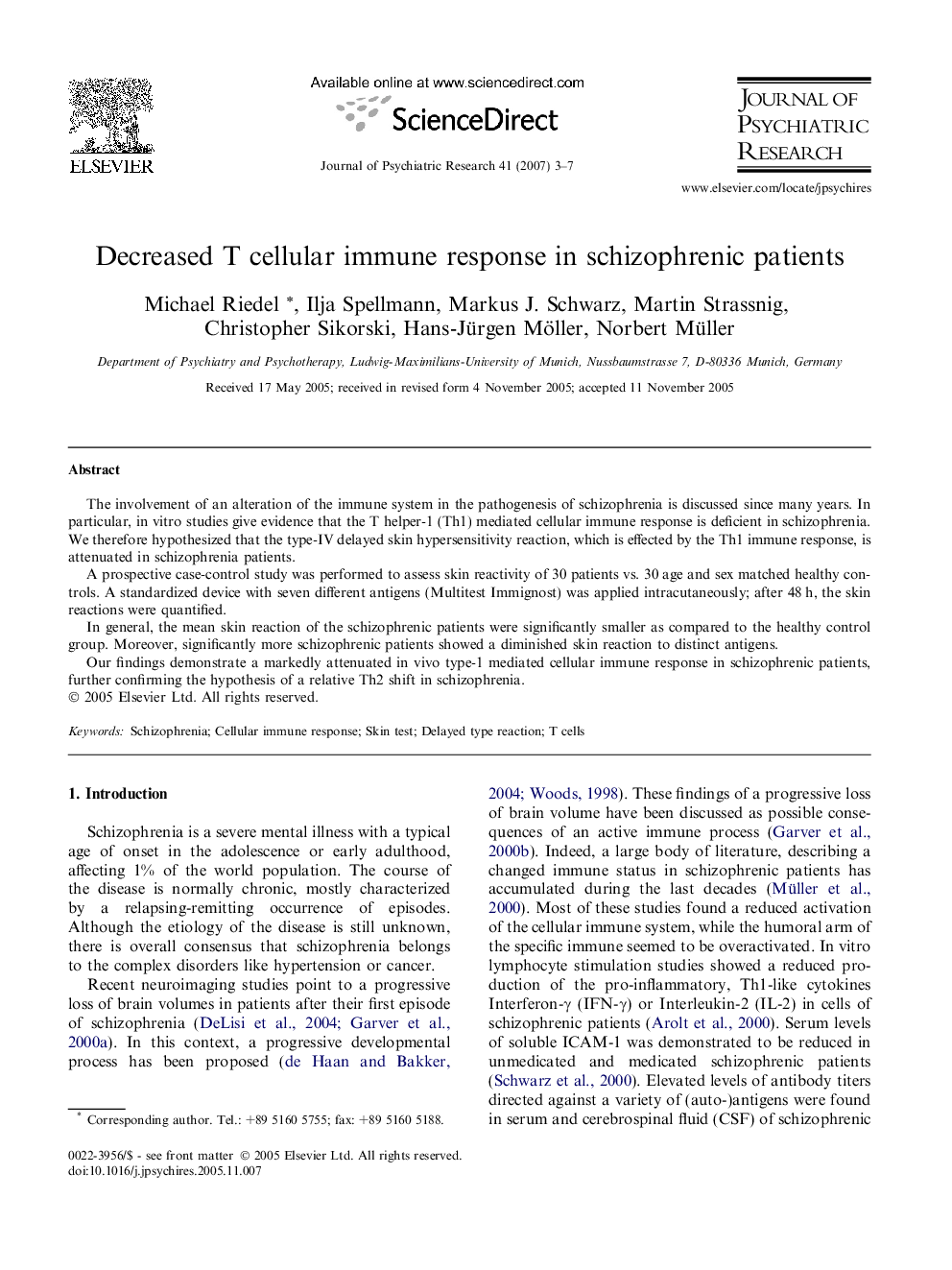| Article ID | Journal | Published Year | Pages | File Type |
|---|---|---|---|---|
| 328149 | Journal of Psychiatric Research | 2007 | 5 Pages |
The involvement of an alteration of the immune system in the pathogenesis of schizophrenia is discussed since many years. In particular, in vitro studies give evidence that the T helper-1 (Th1) mediated cellular immune response is deficient in schizophrenia. We therefore hypothesized that the type-IV delayed skin hypersensitivity reaction, which is effected by the Th1 immune response, is attenuated in schizophrenia patients.A prospective case-control study was performed to assess skin reactivity of 30 patients vs. 30 age and sex matched healthy controls. A standardized device with seven different antigens (Multitest Immignost) was applied intracutaneously; after 48 h, the skin reactions were quantified.In general, the mean skin reaction of the schizophrenic patients were significantly smaller as compared to the healthy control group. Moreover, significantly more schizophrenic patients showed a diminished skin reaction to distinct antigens.Our findings demonstrate a markedly attenuated in vivo type-1 mediated cellular immune response in schizophrenic patients, further confirming the hypothesis of a relative Th2 shift in schizophrenia.
